Turn AI into a capability to breakthrough productivity and service quality
Dr. Nguyen Quoc Hung, Vice Chairman and General Secretary of the Vietnam Banks Association, acknowledged that the banking industry has gone through many stages from digitizing transaction channels, modernizing core systems, to open connection with the ecosystem. Now, the banking industry is entering a new journey of operating with AI.
According to Mr. Nguyen Quoc Hung, AI brings four key values to Vietnamese banks. First, it is qualitative growth, when customer journeys are hyper-personalized, customer churn rates are reduced, cross-selling efficiency is increased, and product portfolios are expanded. Second, it is lean operations, thanks to intelligent automation that reduces costs and shortens product launch times. Third, it is proactive risk management, with the ability to detect fraud in real time and strengthen cybersecurity defenses. Finally, it is trust and compliance, when AI is operated responsibly, transparently, ensuring data privacy and legal compliance.
“AI not only helps us work faster and save more, but also helps us understand customers more deeply, predict better and personalize real-time interactions at a very large scale,” Mr. Nguyen Quoc Hung emphasized.
Citing a Deloitte report, Mr. Hung said that the world's leading banks can improve business performance by 27-35% thanks to AI applications, with revenue per employee expected to increase by up to 3.5 million USD by 2026. In Vietnam, banks have pioneered the deployment of AI in: chatbots, eKYC, behavioral data analysis or fraud detection, etc., creating a foundation to improve service quality and operational efficiency.
However, he also said that to turn potential into results, banks need to overcome many challenges from data governance, balancing between humans and automation, to organizational capacity and cooperation between banks, regulators, fintechs and technology partners.
“With the advantage of a young population, a strong technological spirit and a determination to digitize from the Government to the banking industry, I believe the industry will turn AI into an organizational capacity, making a breakthrough in productivity, quality and regional competitiveness,” he affirmed.

The world's leading banks can improve business performance by 27-35% thanks to AI applications. Illustration photo
The direction of pioneering organizations
According to Mr. Pham Anh Tuan, Director of the Payment Department, State Bank, AI in the banking sector today can be divided into three layers of capacity corresponding to three steps of technology maturity.
The first layer, predictive AI (traditional Machine Learning), analyzes historical data to predict behavior, credit scoring, and fraud detection. The second layer, generative AI (GenAI), is capable of reading, understanding, summarizing, and generating new content, from reports to contracts and programming code. “GenAI is becoming a knowledge-based virtual assistant, helping to save time, improve productivity, and make the work environment smarter,” said Mr. Tuan. The third layer, Agent AI, is the next step in development when AI not only suggests but can also act, automatically performing specific tasks within the framework of human supervision.
According to the EY-Parthenon 2025 survey, 77% of global banks have deployed or tested GenAI, a sharp increase from 61% two years ago. Nearly 90% of financial institutions believe that AI will create fundamental changes in the next two years. “GenAI is no longer a technology experiment but is becoming a core competency in banks’ operational strategies,” Mr. Pham Anh Tuan affirmed.
He believes that AI is shifting from the role of data analysis to collaboration and decision-making with humans. AI becomes a layer of intelligent operational knowledge, making the system faster, more accurate and more personalized. Internally, AI also helps eliminate repetitive tasks, expands space for creativity and changes working mindsets.
Not only commercial banks, but also central banks are applying AI in 24/7 proactive monitoring, liquidity monitoring and fraud risk monitoring, giving early warnings to managers. “ AI is not only a tool for commercial banks, but also a fundamental capacity to support policy making and macro supervision,” Mr. Tuan emphasized.
For Vietnam, he assessed this as a “golden opportunity” to quickly enter the AI wave along with risk management and sustainable development. AI opens up three great opportunities: deeper customer understanding, more efficient operations and smarter decision making.
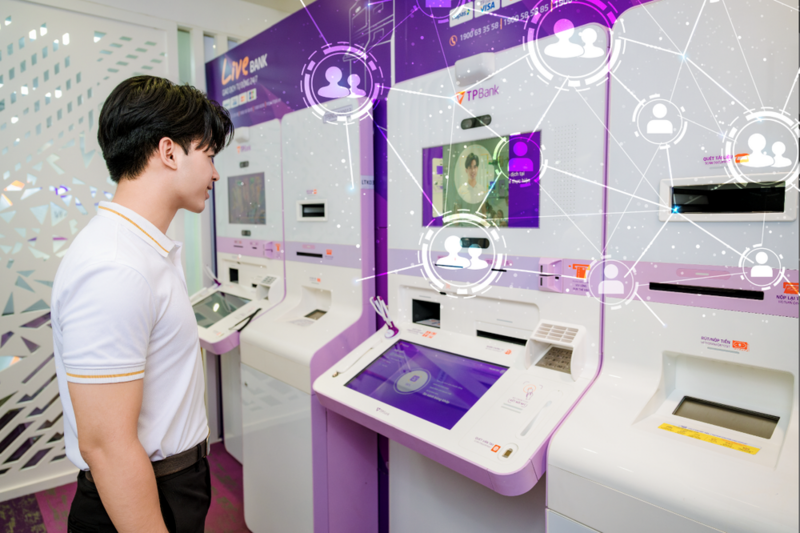
TPBank digital bank takes data as its core, considering data as a strategic asset and growth driver. Photo: Duy Minh
While AI is gradually becoming a fundamental capability, many Vietnamese banks have pioneered the transformation of technological thinking. Tien Phong Commercial Joint Stock Bank (TPBank) is a typical example with the philosophy of “Data-First, AI-Top and Cloud Ready”, taking data as the core, considering data as a strategic asset and growth driver.
TPBank builds a “data democratization” process, where each employee not only enters data, but also contributes to the common resource. Accurate and complete data creates synergistic value for the entire system. The bank flexibly decentralizes access, ensuring high safety and security, especially with encrypted customer data and access levels.
The power of the Data-First philosophy is clearly demonstrated in campaigns such as “Em xinh say hi” – a program that helped TPBank’s brand recognition among young people break through, the number of application downloads increased by 200%, reaching 120,000 in one day. The positive sentiment index on social networks also led the entire industry for many consecutive months. General Director Nguyen Hung affirmed: “All future business decisions will be based on data, core competencies that create sustainable competitive advantages”.
For Vietnam Maritime Commercial Joint Stock Bank (MSB), data also becomes the foundation for creating a smooth and different financial experience. In 2025, the bank completed the deployment of IBM's big data platform suite including Watsonx.Data, Watsonx.AI and Cloud Pak for Data, marking a step forward in turning data into a tool for deep customer understanding, supporting the creation of personalized financial products.
“MSB no longer relies on fragmented reports or manual analysis,” said Mr. Nguyen Quoc Khanh, Director of MSB Technology. “The bank can quickly convert raw data into standardized information blocks, ready to be integrated into smart systems to serve real-time decision making.”
Thanks to the new platform, MSB has deployed Martech, a multi-channel marketing and analysis system, helping to understand customers at every touchpoint, proactively suggesting products that meet their needs. In particular, the M-Flex product is an online mortgage loan solution of up to 15 billion VND, approved in just 4 hours, a clear demonstration of the power of data and AI in shortening the process and improving the experience.
By prioritizing information security, both TPBank and MSB show a common direction for Vietnamese banks in the AI era: based on data, operated by technology, but oriented towards humans, so that AI does not replace, but goes hand in hand with human intelligence, ethics and emotions in the journey of creating smart and humane banks.
Mr. Pham Anh Tuan, Director of the Payment Department, State Bank: We need an industry-level AI risk management framework, an AI ethics council at the bank, promoting controlled application, awareness training and transparent compliance. Because AI cannot replace emotions, experience and ethics, but it can amplify the power of human intelligence if it is understood correctly, used correctly and managed properly.
Source: https://congthuong.vn/ngan-hang-so-trong-ky-nguyen-ai-giai-phap-nao-de-phat-trien-da-dich-vu-429334.html



![[Photo] Da Nang: Hundreds of people join hands to clean up a vital tourist route after storm No. 13](https://vphoto.vietnam.vn/thumb/1200x675/vietnam/resource/IMAGE/2025/11/07/1762491638903_image-3-1353-jpg.webp)






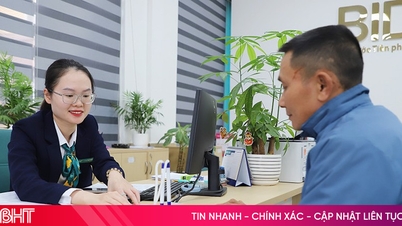



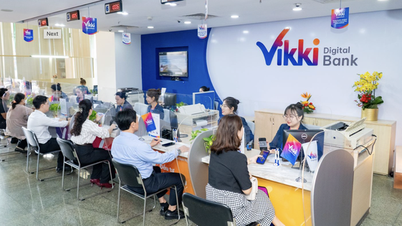

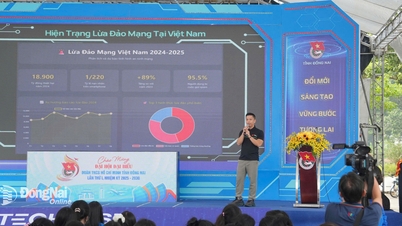






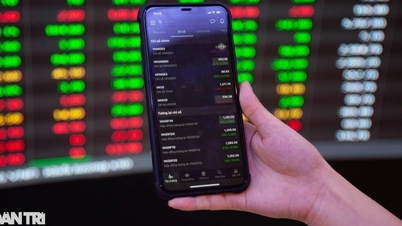
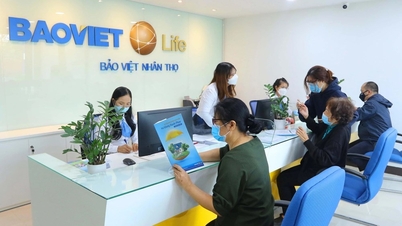

















































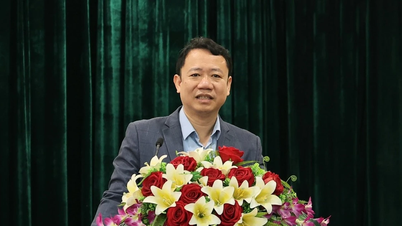
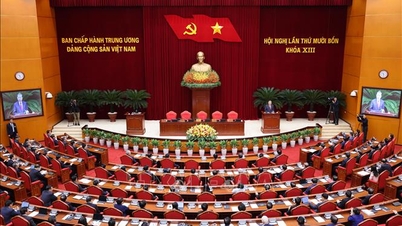







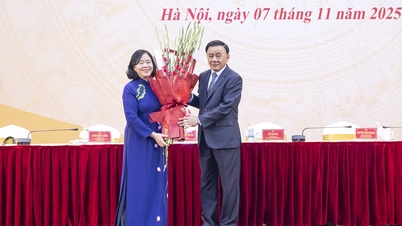


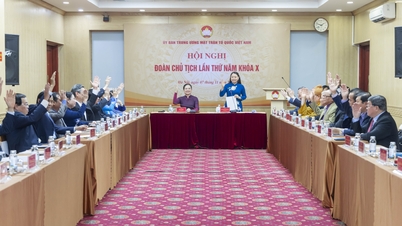





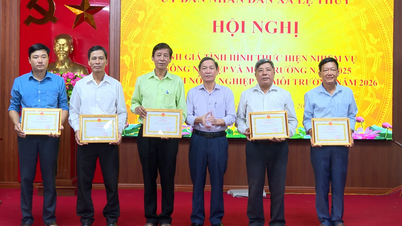



















Comment (0)